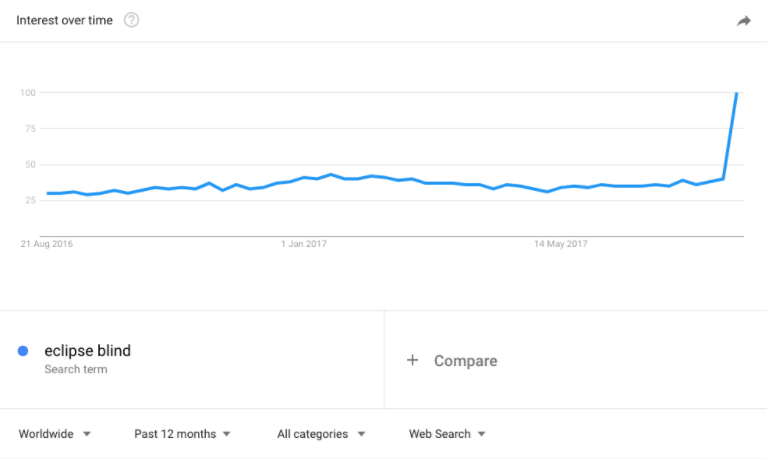U2 once sang: ‘I’m not the only one, staring at the sun, who’s happy to go blind…” which was certainly true on Monday, when millions of Americans threw caution to the wind and gazed up at the big ball of fire in the sky as it was slowly enveloped by the moon.
This carefree indifference didn’t last long however, as the sun gazers appeared to panic over the effect the celestial phenomenon had on their retinas, with many taking to social media to complain over discomfort in their peepers.
Google Trends also showed a huge spike in phrases like: “solar eclipse headache,” “solar eclipse blind,” “eyes hurt,” “accidentally looked at eclipse,” “headache after solar eclipse,” “burned retinas,” “eclipse headache,” and “eclipse blind.”
This panic appeared unnecessary however, as experts waded in to assure people that if the eclipse were to affect their eyesight, it wouldn’t be obvious around 12 hours after the eclipse when people would noticed altered vision on waking up the next day.
In fact, there are no immediate symptoms associated with damage to the retina, which doesn’t have any pain receptors, ophthalmologists say.
Keep your body in tip-top shape with a subscription to Healthy
isubscribe REWARDS
Instant £2.50 credit > Read more

